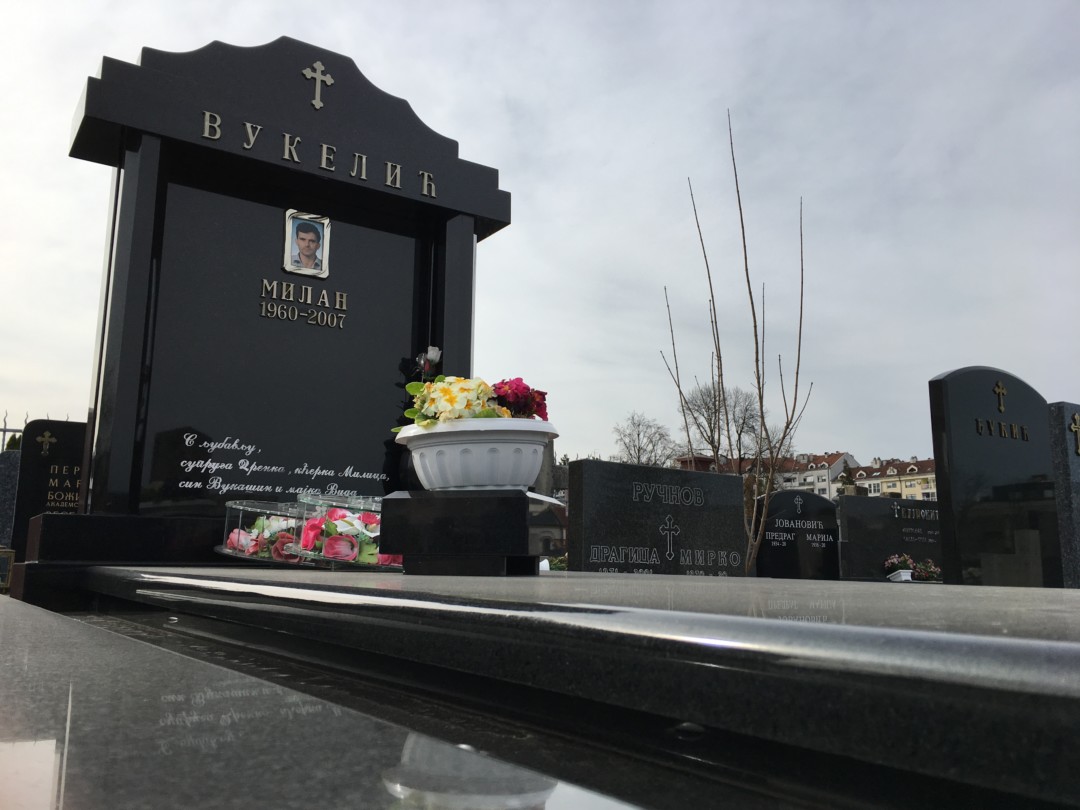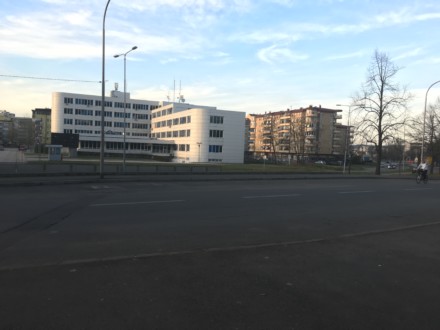6 November 2007
Banja Luka, Bosnia and Herzegovina
Milan Vukelić
Profession
Private Sector
Motive
Whistleblowing


Adolfo Olivas


Ahmed Divela


Amit Jethwa


Artan Cuku


Babita Deokaran


Bayo Ohu


Berta Cáceres


Bhupendra Veera


Bill Kayong


Boris Nemtsov


Boško Buha


Chai Boonthonglek


Charl Kinnear


Chut Wutty


Chynybek Aliev


Cihan Hayirsevener


Daphne Caruana Galizia


Darío Fernández


Derk Wiersum


Deyda Hydara


Édgar Quintero


Edmore Ndou


Edwin Dagua


Federico Del Prete


Fernando Villavicencio


Gezahegn Gebremeskel


Gilles Cistac


Habibur Mondal


Igor Alexandrov


Jacob Juma


Ján Kuciak


Javier Valdez


Joannah Stutchbury


José Ángel Flores


Jules Koum Koum


Kem Ley


Luis Marroquín


Mahamudo Amurane


Marcelo Rivera


María Elena Ferral Hernández


Marielle Franco


Milan Pantić


Milan Vukelić


Muhammad Khan


Nelson García


Nihal Perera


Oliver Ivanović


Orel Sambrano


Perween Rahman


Peter R. de Vries


Rajendra Singh


Salim Kancil


Sandeep Sharma


Sikhosiphi Radebe


Slaviša Krunić


Soe Moe Tun


Victor Mabunda


Virgil Săhleanu


Wayne Lotter


Yuniol Ramírez


Zezico Guajajara
6 November 2007
Banja Luka, Bosnia and Herzegovina
Profession
Private Sector
Motive
Whistleblowing
Not long after Milan Vukelic had told a journalist that his life was in danger, a bomb exploded under his car, killing him and injuring two passengers.
Vukelić, a whistle-blower on local organized crime in the construction sector in Bosnia and Herzegovina, was known for probing construction groups and disclosing information to journalists about irregularities in building projects around Banja Luka, the country’s second largest city. It was an environment in which whistle-blowers were not protected.
After his mother’s house and his car had been set on fire earlier the same year, he told journalist Vladimir Susak that an attack on him was coming. ‘They will kill me; I know it,’ the journalist recalled Vukelić saying. Susak told the author that despite his foreboding, Vukelić had continued to provide information on illicit construction activities, fully aware of the danger he was facing.
Vukelić began working at the Banja Luka Construction Bureau, an entity that oversees and controls building developments in the city, soon after he had qualified as a civil engineer. He was a dedicated worker and proud to be there. His sister, Ljiljana Todorović, said he had insisted on following rules and laws to the letter. That, in an organization where irregularities, non-compliance and bribery were supposedly reported, and where the construction bureau was allegedly involved in shady construction deals and budget irregularities. Construction work in Banja Luka is reportedly embroiled in corruption and bankrolling, allegedly involving political parties, the private sector and powerful individuals.
Vukelić was in charge of approving finished construction projects financed by the Banja Luka city authorities. Milan was involved in the construction of completely new buildings and, without his signature, no development could be officially opened. In 2006, he refused to sign off on some of the biggest new construction sites in the town, including the City Park. He found works on the central Krajina Square were substandard and had missed the contractual deadline, citing several irregularities in the process. He also discovered that the price of constructing a city public-works water project had been hiked illegally by €1 million (close to US$1.3 million at the time).
Around 2006, he had begun to amass hundreds of pages of documents that he believed implicated the head of the Construction Bureau, Čedo Savić, in corruption. He asked journalists to inspect them, Susak said. ‘His office was packed with these documents. When people came to see them, he would lock the door out of safety. He was eager to talk about this reported evidence of a “construction mafia” to journalists.’
Vukelić had received threats, he told journalists. After reporting on city construction irregularities, he was summoned by the police, but instead of being asked about those irregularities, he told journalists and family later, he was interrogated about what he was doing. Police officers mentioned his family in a threatening way, he told the media at the time. Those threats did not deter him, but they did disturb him.
‘He was interrogated by the police as if he were a criminal. It was offensive, because he was an honest person. It affected him because he was afraid for his family, although not for himself. He told his wife to protect the children, to keep them inside,’ Todorovic remembers.
Vukelić’s home was raided by the police after he made the documents public and they ordered him to undergo psychiatric evaluation. ‘They wanted to make him seem crazy,’ Susak explained.
During the police interrogation, Vukelić was shown a list of signatures of employees at the bureau, saying they were opposed to his making the documents public. All his colleagues, except for one who supported Vukelić, avoided him.
Another journalist, whom Vukelić met frequently, Miljan Kovač, wrote in his book (in translation, Those who are stealing are also killing: who killed Milan Vukelić?) that Vukelić’s colleagues considered him to be incorruptible. The night Vukelić died, 6 November 2007, Kovač was due to meet him to discuss a new story about corruption that the civil engineer was about to expose. However, as he explained in his book, Kovač had not been feeling well and decided not to go.

Vukelić's final resting place

The site of Milan Vukelić's murder, Banja Luka
Vukelić was killed soon after he drove away from the bar he owned when, just 200 metres from the police headquarters, a bomb exploded under his car, killing him on the spot. After the incident, a high-ranking member of the police, Gojko Vasić, told the media that ‘Vukelić obviously touched certain people who are untouchable and then they decided on this cruel act’.
More than a decade later, the killers have not been found. Vasić said in an interview that the murder had been carried out by a professional who was an expert in explosives. Local independent media in Banja Luka claimed it was perpetrated by an organized criminal group.
In December 2008, the police chief at the time, Uroš Pena, said the police knew who the perpetrators were but were having difficulties proving it. Hounded continually by the media, the police say the investigation is still ongoing.
Most of the cases around the construction mafia that Vukelić was exposing have not been processed by the police or prosecutor’s office. Although one rare case that did end up in the courts was concluded with a token fine. Vukelić’s boss, Savić, whom Vukelić had reported for corruption, was sentenced to a fine of €4 500 in 2013 (about US$6 000 at the time) for giving away a bureau apartment to a non-bureau employee.
Not long after the murder, Milorad Dodik, former long-time prime minister and president of Republika Srpska and current chairman of the Presidency of Bosnia and Herzegovina, said no one from his party was involved in or responsible for Vukelić’s death, but refused to elaborate on how he knew that.


8 April 2017
Tirana, Albania
Artan Cuku


27 February 2015
Moscow, Russia
Boris Nemtsov


10 June 2002
Belgrade, Serbia
Boško Buha


19 December 2009
Bandirma, Turkey
Cihan Hayirsevener


16 October 2017
Bidnija, Malta
Daphne Caruana Galizia


18 September 2019
Amsterdam, Netherlands
Derk Wiersum


18 February 2002
Casal di Principe, Italy
Federico Del Prete


1 July 2001
Slavyansk, Ukraine
Igor Alexandrov


21 February 2018
Veľká Mača, Slovakia
Ján Kuciak


11 June 2001
Jagodina, Serbia
Milan Pantić


16 January 2018
North Mitrovica, Kosovo
Oliver Ivanović


15 July 2021
Amsterdam, The Netherlands
Peter R. de Vries


22 April 2019
Banja Luka, Bosnia and Herzegovina
Slaviša Krunić


7 September 2000
Iași, Romania
Virgil Săhleanu